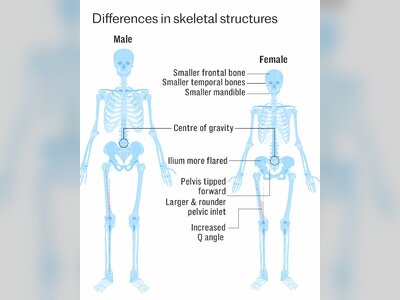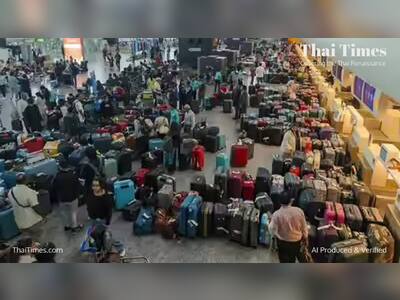0:00
0:00
Cooling Blankets: A Remedy for Those Who Sleep Hot or Just a Marketing Trick?
Cooling blankets designed for consumers claim to enhance sleep quality by managing body temperature, yet scientific research supporting their effectiveness is still scarce.
Cooling blankets have garnered considerable interest in recent years, frequently promoted as a remedy for individuals facing hot, restless nights.
These blankets are advertised as effective means for managing body temperature during sleep, potentially providing relief for those who suffer discomfort from heat.
Nonetheless, the scientific evidence backing these claims remains limited, prompting consumers to question the actual benefits of these products.
Understanding the Science of Sleep Temperature
Studies indicate that a cooler sleep environment can enhance the quality of sleep.
The human body’s internal temperature follows a circadian rhythm, decreasing by approximately 0.31°C in the hours before sleep, with an additional drop of 2°C during the night.
This drop assists in the transition to deeper stages of sleep.
If the surrounding environment becomes excessively warm, the body may struggle to maintain this equilibrium, potentially leading to disrupted sleep.
Experts agree that the optimal sleep temperature is between 17°C and 28°C, although this can vary based on personal preferences, seasonal changes, and the type of bedding used.
What Are Cooling Blankets?
Cooling blankets are crafted to help sustain this ideal temperature range utilizing a variety of materials and technologies.
Unlike hospital-grade blankets, which employ cooling mechanisms like circulating water or air to manage body temperature, consumer-grade cooling blankets generally feature lightweight and breathable fabrics such as cotton, bamboo, silk, and Lyocell.
These materials are acknowledged for their moisture-wicking abilities, which aid in keeping the sleeper dry and comfortable.
Some cooling blankets also utilize phase change materials (PCMs) originally developed by NASA for astronaut suits.
PCMs absorb and store heat, creating a cooling effect that aligns with the body’s temperature.
Another measure of a cooling blanket’s effectiveness is the Q-Max rating, which assesses how cool a fabric feels against the skin.
The higher the rating, the cooler the fabric will feel.
Do Cooling Blankets Work?
Consumer reports and reviews indicate that cooling blankets may offer relief from heat, potentially enhancing sleep quality for some individuals.
However, scientific validation of their effectiveness is still scarce.
A 2021 study assessed the sleep quality of 20 participants under two different scenarios: using standard bed sheets in an air-conditioned room at their preferred temperature, and using cooling bed sheets in a room set 3°C higher.
The findings revealed that while sleep quality was adequate in both scenarios, participants favored the cooler environment with the cooling sheets.
This implies that cooling bedding could improve comfort and sleep quality, although the effects may vary based on individual factors.
Despite these results, the absence of robust scientific evidence means that the effectiveness of cooling blankets cannot be assured for everyone.
Variables such as age, health, personal preferences, and the specific sleeping environment influence whether a cooling blanket will be effective.
The Market for Cooling Blankets
Cooling blankets are offered in a wide array of price ranges, with numerous consumer reviews praising their capacity to improve comfort on warmer nights.
Nevertheless, prospective buyers should recognize that positive customer feedback may be subjective, with the effectiveness of these products fluctuating among individuals.
Furthermore, the lack of comprehensive scientific research necessitates that consumers depend on anecdotal evidence when considering an investment in a cooling blanket.
Alternative Solutions for Hot Sleepers
For those who find cooling blankets insufficient, various other strategies can assist in managing heat during sleep.
These include utilizing air conditioning or fans, applying a damp towel to the body, and wearing lightweight or breathable sleepwear crafted from natural materials.
Steering clear of thick, heat-retaining fabrics like nylon may also enhance comfort.
In situations where a bed is shared, sleeping separately on especially warm nights can help lessen the transfer of body heat.
For individuals who regularly experience sleep disturbances related to temperature issues, consulting with a healthcare provider is recommended.
A healthcare professional can help identify any underlying medical conditions contributing to sleep disturbances and suggest suitable solutions.
These blankets are advertised as effective means for managing body temperature during sleep, potentially providing relief for those who suffer discomfort from heat.
Nonetheless, the scientific evidence backing these claims remains limited, prompting consumers to question the actual benefits of these products.
Understanding the Science of Sleep Temperature
Studies indicate that a cooler sleep environment can enhance the quality of sleep.
The human body’s internal temperature follows a circadian rhythm, decreasing by approximately 0.31°C in the hours before sleep, with an additional drop of 2°C during the night.
This drop assists in the transition to deeper stages of sleep.
If the surrounding environment becomes excessively warm, the body may struggle to maintain this equilibrium, potentially leading to disrupted sleep.
Experts agree that the optimal sleep temperature is between 17°C and 28°C, although this can vary based on personal preferences, seasonal changes, and the type of bedding used.
What Are Cooling Blankets?
Cooling blankets are crafted to help sustain this ideal temperature range utilizing a variety of materials and technologies.
Unlike hospital-grade blankets, which employ cooling mechanisms like circulating water or air to manage body temperature, consumer-grade cooling blankets generally feature lightweight and breathable fabrics such as cotton, bamboo, silk, and Lyocell.
These materials are acknowledged for their moisture-wicking abilities, which aid in keeping the sleeper dry and comfortable.
Some cooling blankets also utilize phase change materials (PCMs) originally developed by NASA for astronaut suits.
PCMs absorb and store heat, creating a cooling effect that aligns with the body’s temperature.
Another measure of a cooling blanket’s effectiveness is the Q-Max rating, which assesses how cool a fabric feels against the skin.
The higher the rating, the cooler the fabric will feel.
Do Cooling Blankets Work?
Consumer reports and reviews indicate that cooling blankets may offer relief from heat, potentially enhancing sleep quality for some individuals.
However, scientific validation of their effectiveness is still scarce.
A 2021 study assessed the sleep quality of 20 participants under two different scenarios: using standard bed sheets in an air-conditioned room at their preferred temperature, and using cooling bed sheets in a room set 3°C higher.
The findings revealed that while sleep quality was adequate in both scenarios, participants favored the cooler environment with the cooling sheets.
This implies that cooling bedding could improve comfort and sleep quality, although the effects may vary based on individual factors.
Despite these results, the absence of robust scientific evidence means that the effectiveness of cooling blankets cannot be assured for everyone.
Variables such as age, health, personal preferences, and the specific sleeping environment influence whether a cooling blanket will be effective.
The Market for Cooling Blankets
Cooling blankets are offered in a wide array of price ranges, with numerous consumer reviews praising their capacity to improve comfort on warmer nights.
Nevertheless, prospective buyers should recognize that positive customer feedback may be subjective, with the effectiveness of these products fluctuating among individuals.
Furthermore, the lack of comprehensive scientific research necessitates that consumers depend on anecdotal evidence when considering an investment in a cooling blanket.
Alternative Solutions for Hot Sleepers
For those who find cooling blankets insufficient, various other strategies can assist in managing heat during sleep.
These include utilizing air conditioning or fans, applying a damp towel to the body, and wearing lightweight or breathable sleepwear crafted from natural materials.
Steering clear of thick, heat-retaining fabrics like nylon may also enhance comfort.
In situations where a bed is shared, sleeping separately on especially warm nights can help lessen the transfer of body heat.
For individuals who regularly experience sleep disturbances related to temperature issues, consulting with a healthcare provider is recommended.
A healthcare professional can help identify any underlying medical conditions contributing to sleep disturbances and suggest suitable solutions.











